|
And now we get to the juicy, fun stuff!
Singing is a biggie! It's probably the biggest biggie when teaching elementary general music. It's the skill and sound source for almost all the modeling of other sounds that kids will make with instruments or otherwise in your class. Singing is the one musical thing that the youngest to the oldest adult can do and always feel successful about their efforts. Singing can also be a target on each child's ego if they feel they aren't good enough. A reaction of a callus teacher, a wayward grimace from a parent, an inappropriate laugh from a classmate, a maladroit complement from a principal, or just the every day insensitivity that the world can incessantly churn out can be the genesis for a child thinking they can't sing. Most adults who tell me that they can't sing we're told they couldn’t sing when they had a single digit age and they have been playing that trope/tape over and over and over in their heads since their youngest years. Before we examine the singing of our students, let's take a look at ourselves as musicians and educators. Self-assessment Do you sing? Do you like to sing? Are you any good at singing? What have people told you about your singing? Have you ever sung in public, either in a group or solo? Have you ever sung into a microphone? Have you ever had someone clap for your vocal performance after you sang? Have you ever had anyone boo after you’ve sung? Do you feel that singing is only for those who are really gifted in the skill? Do you now have or have you ever had students who sang better than you? Do you believe that you can get better at your singing? Let's take a look at a couple of these queries. Do you sing? Well, if you're a general music teacher in elementary or junior high, you better be able to sing. Unfortunately, a lot of instrumental music majors end up getting elementary general music gigs and primarily focus on the instrumental aspects of teaching children music without embracing the concept that the child's voice is the first instrument they'll ever engage. These teachers avoid singing or nonchalantly approach it like a natural skill or talent. Do you like to sing? This is sort of a loaded question. I would hope you would love to sing. I do. I've always felt that the best elementary general music teachers I've ever observed exhibited a joy when they sang. Therein lies the rub. As someone who has sung professionally for decades, I've occasionally had to sing material that I really did not care for but I had to present it in a way that appeared that I loved it. That is a skill that I did not have to use in school but sporadically had to on gigs. If you don't like to sing or if you have hang-ups about your own singing right now, it's important to learn to appear like you're having fun while you're singing with your students. The short reason for that is if you're not having fun, why should they? And singing should be fun! If you have issues with singing, it's best to work through them. Accept your abilities where they are right now, no matter how weak a singer you think you are, and strive to get better. Am I saying go get vocal lessons? No, not necessarily. If you are the person who is driven by a teacher/student paradigm, then sure, find a good vocal mentor or teacher. But if you have a tendency to approach things like an autodidact, start being scientific about your sound and technique when you sing. Understand how your body works when it makes us a vocal sound. Be able to think top down in your body and visualize what's going on with your sinuses, your nasal cavities, your mouth, your tongue, your throat, your lungs, and your stomach. Just as an instrumentalist understands all the intricacies of their own personal instrument and how manipulating it can add nuance to intonation or sustain, as a singer, you must think about your voice as an instrument and understand it as such. I've heard many music teachers say, “I can't stand the sound of my own voice.” I hate to tell you this but I'm going to break the news to you right now. Your voice is the only voice you have. You can look at your voice as either a curse or a gift. My advice is to approach it as the latter. It's the voice that your parents gave you. As I grew older and into my thirties and forties, I came to realize that I could hear my father's voice in my voice, which sort of freaked me out at the time. I was not expecting it. I grew into the understanding of hearing that sound and came to see that it as one of the greatest gifts my parents gave me. Are you any good at singing? Yes! You are great at it. I'm telling you this and I haven't even heard you sing. But I believe that if you hear the qualities you want to hear in your own voice as you sing then, yes, you are a good singer. Has anyone told you anything about your singing? I hope you have been told that you sound great. But if you haven’t, know that those compliments are just a little bit down the road from where you are. They’re coming! Fortunately, from my earliest years, negative criticism really never bothered me that much. If you've heard or seen negative reactions after you've sung in the past, try and dust it off your shoulder. You are a work in progress. More on the importance of singing in “Stacking Skills for Success: Singing – Part Two”. Some of you might question why I put so much weight (let alone so many damn words) on the first three skills that I stack, namely listening, self-discipline, and proactive mindset.
If you’ve been my principal . . . If you’ve watched me teach . . . If I taught your kids . . . If you were my student . . . If you’ve only read these posts and wonder “Who the hell is Holmes?” The truth is that those first three components were crucial in allowing me to accomplish everything in the classroom and allow my students so much free reign to develop their individual talents. Self-evaluation First things first. As educators, we have to take stock of ourselves before we even approach our students with these first three skills. Where have we succeeded in our personal and professional lives? What part did self-discipline, refine listening skills, and proactivity play in achieving our successes. If we are weak in any of those areas, how have our lack of success or forward movement been a result of not emphasizing the first three skills in our lives? Trust me. I didn’t always get it right. These aren't easy questions to ask and sometimes the answers are even harder to admit to. But addressing them head on is the only path forward. Embrace Success The more successful we are in the arena of music, the more we are demonstrating to our students how we embraced self-discipline, listening, and pro action to get us to where we are today as musicians. This is not to diminish all the hours our students play or sing by putting the spotlight on us. It’s central, though, to create a visual and aural foundation exemplifying those three skills in a musical context so our students can have a take off perspective to invision their own musical path. My demeanor of listening, self-discipline, and proactivity was always the key component of anything musical that I did in the classroom. Prime the Pump: Suggest Questions I learned early on that one of the most powerful questions I could ask any teacher or role model was “Can you show me one? Can you give me an example?” I coached my students to ask the same types of questions. As a kid, I knew that if I could see it, hear it, mentally or physically ingest it, I'd have a much greater chance of replicating success and taking it to an even different place through my own hard work and interpretations. “How did you compose that, Mr. Holmes?” “How do you do that on the piano, Mr. Homes?” “How are you able to strum that so fast on a guitar, Mr. Holmes?” “How do you get your fingers to do that, Mr. Holmes?” “How do I practice when I’m all by myself at home, Mr. Holmes?” “Are you rich, Mr. Holmes? I know you are. How do I get rich?” These are all questions I was asked by kids AFTER they were intrigued and curious by what they observed in our classroom. And every answer I gave had an element of the first three stacking skills embedded in it. Creating a World of Autodidacts In other posts, I've talked about if I only had five or three or even just one class to teach, what would I teach. I firmly believe that with the foundational three stacking skills, a groundwork will be secured where any musical skill can be fostered by the student on their own. Our purpose as a teacher is to mold individuals who thrive on what we have provided after they leave. Observing these first three stacking skills (especially proactivity) in action with my mentors in my teen years was the reason I developed from a kid who barely got out of high school to a successful educator, composer, educator, and consultant with more than a handful of credits and awards in my back pocket. The Closer As educators, we need to present ourselves as musicians, not music teachers, and light a fire that no other educator ever could. Once a child wants to play music, that desire will stay with them for the rest of their life whether they act on it or not. The fire might go down to embers but it always has the ability to roar right back. The problem is that if our students don't have the listening skills, the self-discipline, and the proactive inclination to go back to music, the odds are slim that they will embrace the challenge. When people hit a plateau with music or it's simply just gets too hard, it's the first three skills are the ones that will pull them through the slump. It's these first three skills that will pave a road for success in just about anything they pursue in their lives. If, as music educators, all we teach is music, we miss the point that music is only a part of life. It’s how music is connected within our lives by our ability to critically listen, self-modulate, and proactively preform that we are able to pull it all together. And isn’t that what we want for our students? As I sit and write this, I am enjoying the beginning of my fourth year away from teaching.
I gig when I feel like it, spend when I feel like it, practice when I feel like it, and continue to walk six miles a day. Lately, I’ve been helping my mom after she had emergency surgery and a stint in rehab. I believe all of this has been possible primarily because I adopted a proactive mindset decades ago. It’s permeated my gigging, teaching, financial, and personal choices, all for the better. My dad was my proactive role model. Typical proactive dad koan: BRH: Dad, how come your car is never dirty? Dad: Easy, son, I just don’t let it get dirty. No matter what your age, a proactive attitude makes a positive difference in a life and is one of the major tenets that I want my students to embrace as the aged. To me, being proactive involves knowing and doing the right thing, sometimes even a little bit sooner than later, without any prompts from others or rewards other than the self-satisfaction and benefits from being proactive. The first two stacking levels I previously mentioned are the foundation for a proactive mindset. Without accurate listening skills and self-discipline, proactive habits won’t be identified, developed, or thrive. The easiest way to think about a proactive approach is to think of its opposite: a reactive mindset. When we are primarily reactive, we find ourselves simply reacting to events and environments, we gain no momentum. We are at the command of the world around us. When we are proactive, we anticipate and actively work to positively approach events, consequences, and future fulfillment. Self-discipline is what turns occasional proactivity into a habit. Accurate listening and intuitive receptive language provide the necessary data to we require to anticipate what’s coming down the road. Proactive habits are a reward in themselves – our lives run more smoothly. But with children, we have to set up situations and artificial rewards to highlight a proactive mindset until they see the benefits. A proactive mindset shares three stages of development with leadership development: Transactional Personal Transformative When my students exhibited proactive behaviors, my initial rewards were things positive checks on the chalk board or guitar picks. I gave them out early and often in every class so a proactive pattern would become apparent to the kids. This relies on a transactional framework. While the student initially is focused on reacting, it creates the back and forth reciprocating pattern for the student to see the benefits of being proactive. My goal was for the transactional elements to fade and be replaced with a personal connection that relied on a relationship between the student and myself, where the student strove to exhibit self-prompted proactive actions that would gain my positive attention. That personal connection, in turn, would fade into a transformative mindset where the student realizes the real reward isn’t tethered to any other person’s observations, praise, or relationship: a proactive mindset is its own reward, specifically, an improved life experience. Developing a proactive mindset is not a lesson plan or something that can be assessed at the end of the first class. It takes time as well as repetition, monitoring, and revision. Building a proactive mindset in students is very similar to the techniques used to develop your self-discipline. It heavily hinges on continually providing visual feedback that's visual, provided at shifting time increments. I described being proactive to kids was if they could be a think like a magician who could read my mind. If they could read my mind and predict what I was going to say and then do something that I was going to have require them to do, and then do it without me saying a word, well that's pretty darn magical in my world. If, at the beginning of class, a child was sitting up straight, eyes forward, hands-folded in their lap, I might say something like “You were reading my mind, you knew I wanted you to look like that, you're being proactive!”, give them a guitar pick, put a plus on the board, and then ask the class to give them a round of applause. Anytime I went to the board to move the magnet back from stop time from go time to stop time and kids race back to their spot on the rug, I would reward them with either a guitar pick or a few pluses on the board because they were proactively reading my mind and doing what they knew I wanted them to do. I also made a big deal if someone made a “shhhhh”ing sound as I was approaching the board coming out of a break, letting the other kids know that I was about to move the magnet back to stop time. If kids raised their xylophone mallets high in the air before I said, “Sticks in the air.”, I would praise their proactive abilities. The trick is recognizing and praising the class’ proactivity more than highlighting their accurate following of directions. Proactivity needs to be constantly brought it to their attention, reminding them that they don't need a teacher to tell them what to do all the time, that they're smart enough and grown up enough that there are many things they can handle on their own. It is also important to teach when it is NOT proper or safe for them to be proactive. I would always temper that with: “Now, I don't want you to go home and proactively decide early on a Sunday morning to cook a pound of bacon on your stove top when you’re six like I did and almost burned down my house. The six-year-old-me figured I had carefully watched my mom cook bacon hundreds of times before, I knew how to follow directions, and most of all, I was hungry for bacon. Thankfully, the smell of the burning bacon woke up my father up-stairs. He ran down to the kitchen and put out the beginnings of a grease fire. Be proactive in the world of safety, don't venture into a situation where you think you can handle it but you know you should be there.” When kids were coming out of a break in chorus and immediately shifted to choral seated position, eyes forward, feet on the floor, and music open in their lap, ready to sing, they always got a positive proactive verbal reinforcer from me. Once kids know that this idea of proactivity has value to the teacher, they'll start to find little ways to show that it's important to them, too. Sometimes it's easy to miss kids’ proactivity so, as teachers, we have to be observant of the proactive kid and catch them being good as often as possible. The big, fun, proactive moment in our class was a visitor entered our music room. I told the kids the first week of school in music that if a visitor came into our room and they all stood as a sign of respect and smiled showing their teeth, and their teeth were clean (because the only smiles that count are the ones with teeth and clean teeth, at that) and not saying a single word. After the visitor left the room, the class would be rewarded with an 11 on the chalk board as well as a freeze pop party. All my classes loved this proactive application. They would pop up silently smiling every chance they we had a guest and came to realize that they enjoyed the visitor’s surprised admiration as much as the freeze pops. Kids would ask if they stood up in other rooms, would the freeze pop party deal worked in other rooms in the school and my answer was always “no, just in the music room, but feel free to stand as a sign of respect wherever you are if someone walks into the room. If you do, they will appreciate your sign of respect, and in turn, will respect you – because the easiest way to gain the respect of others is to do respectable things.” Teachers and parents would tell me stories of how their kids proactively stood up out of the blue in different social situations and the profound impact it had on the grown-ups in the room. My father was the one who trained me to stand when my grandmother entered the room. Same with carrying her groceries from the store to the car. Or helping her with her chair. He pointed out the smile and appreciation on her face every time that I proactively helped her. Years later, my car might not be as clean as dad’s was but his lessons in proactivity have ended up being one of the cornerstone in my personal and professional life. |
AuthorBoyd Holmes, the Writer Archives
April 2025
Categories |
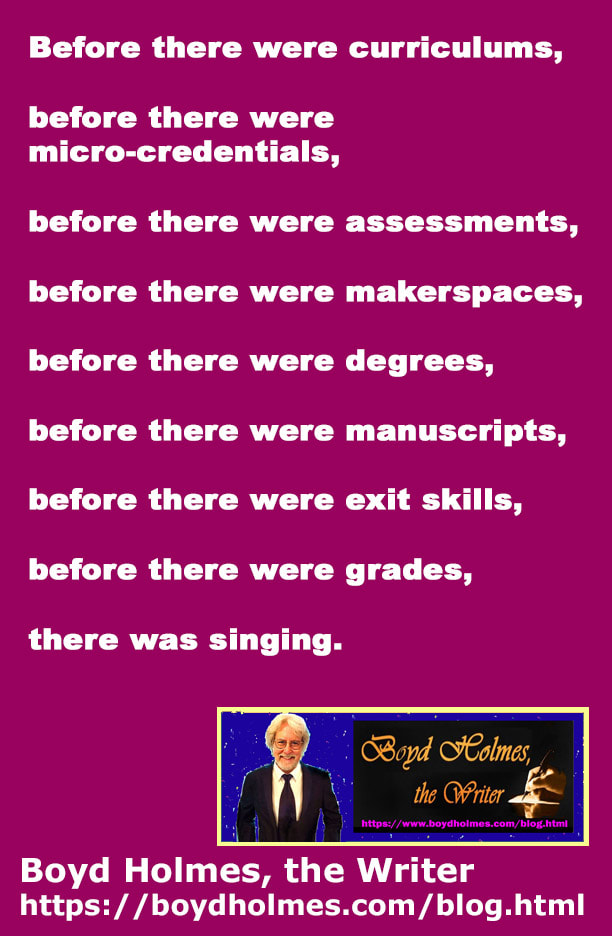
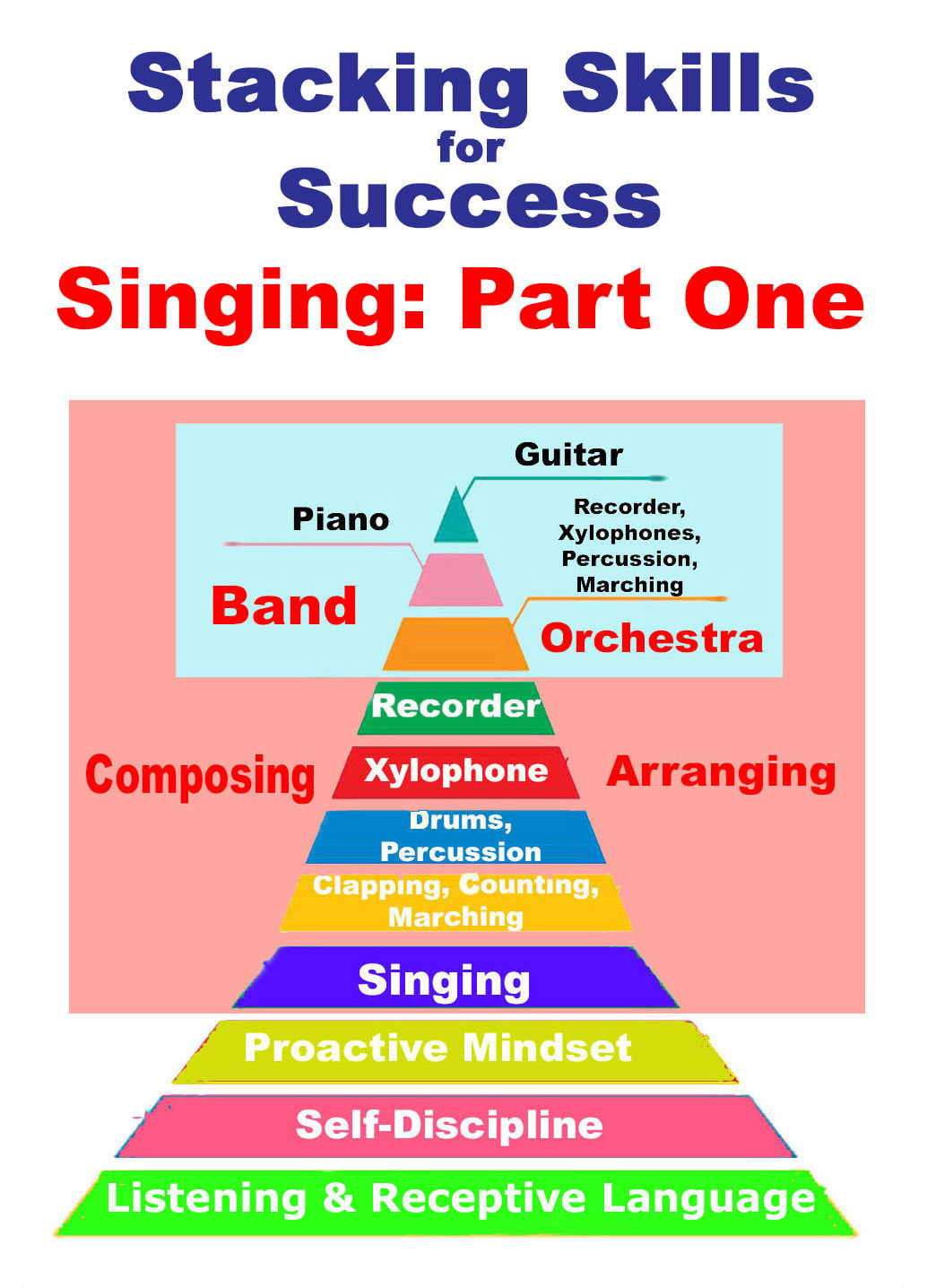
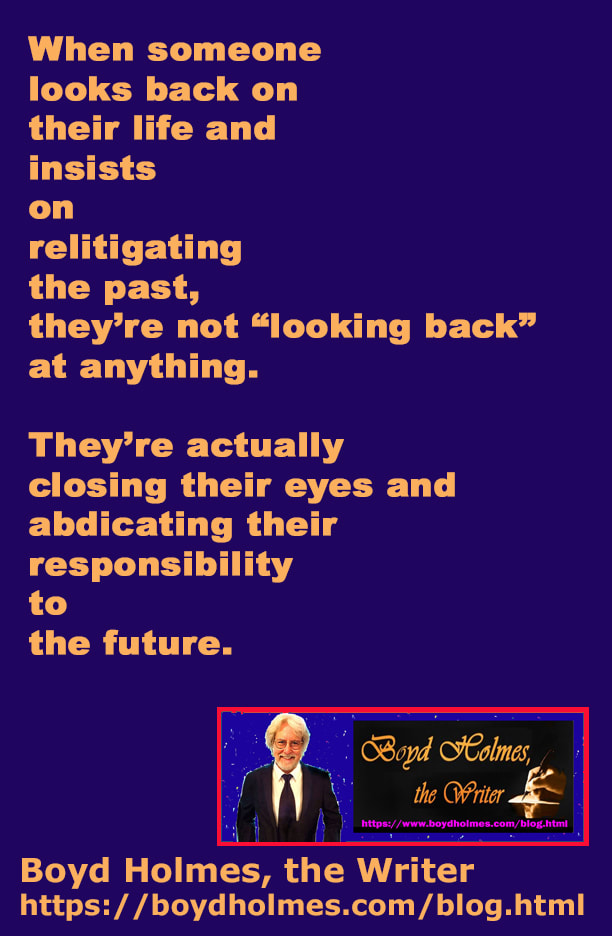
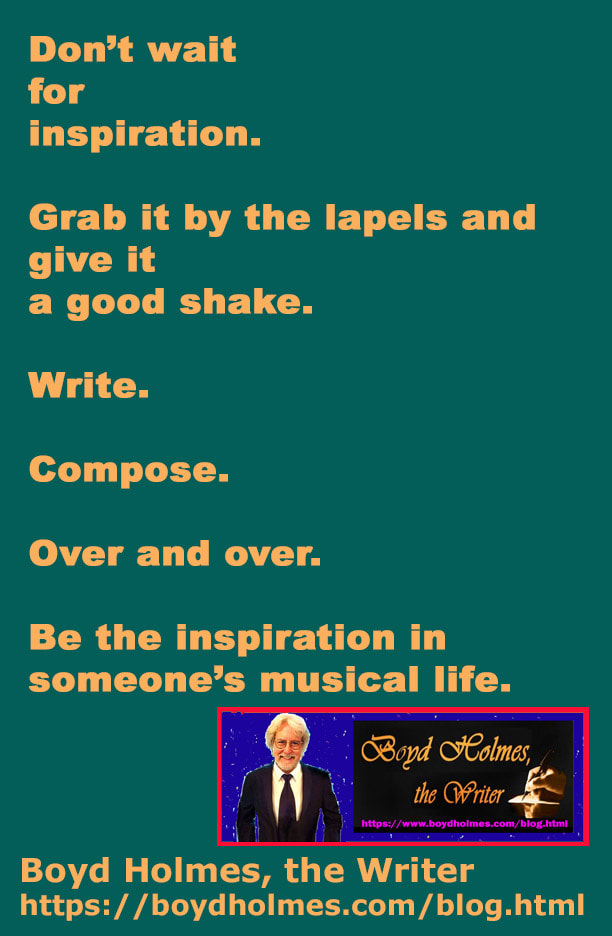
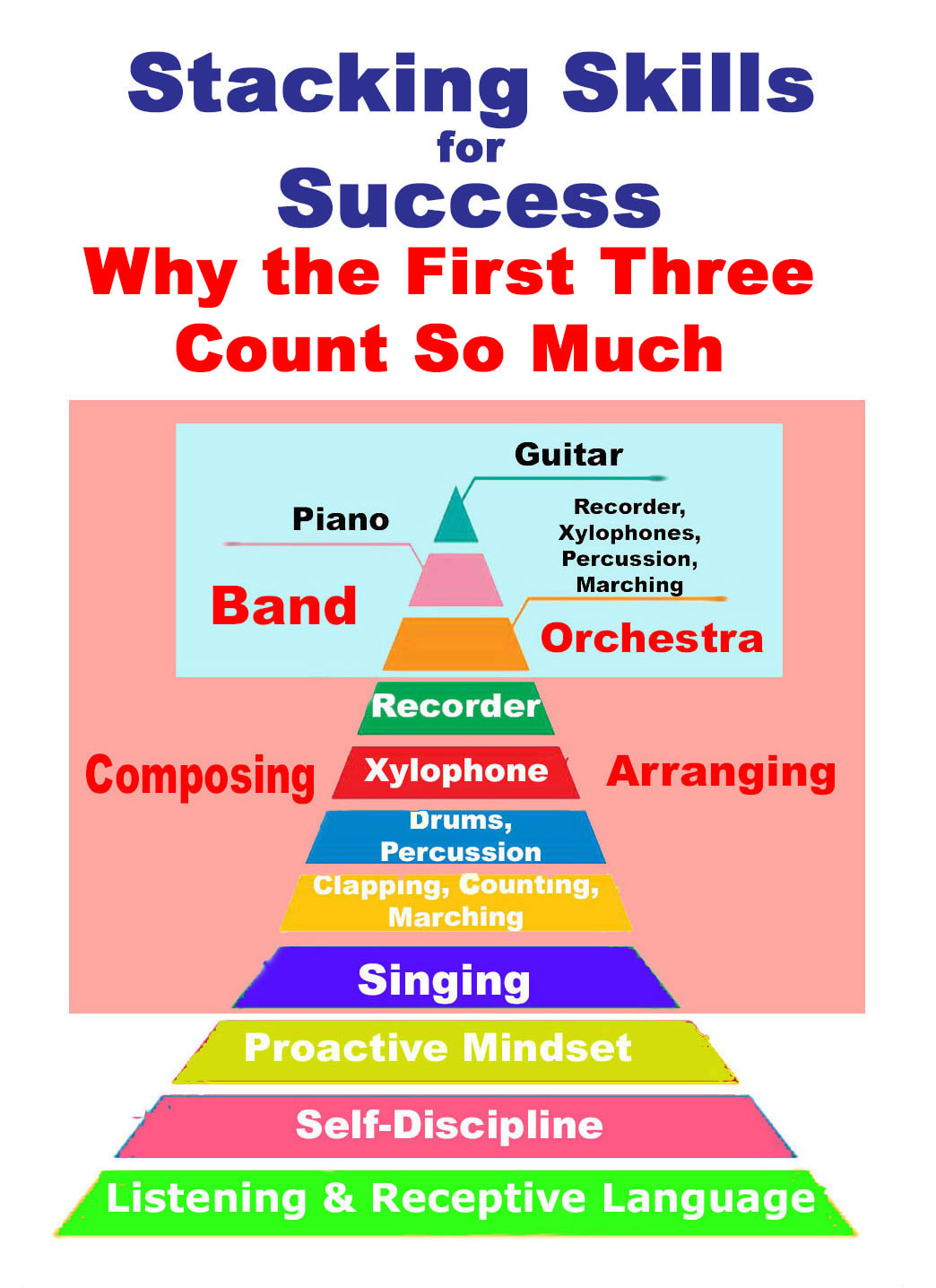


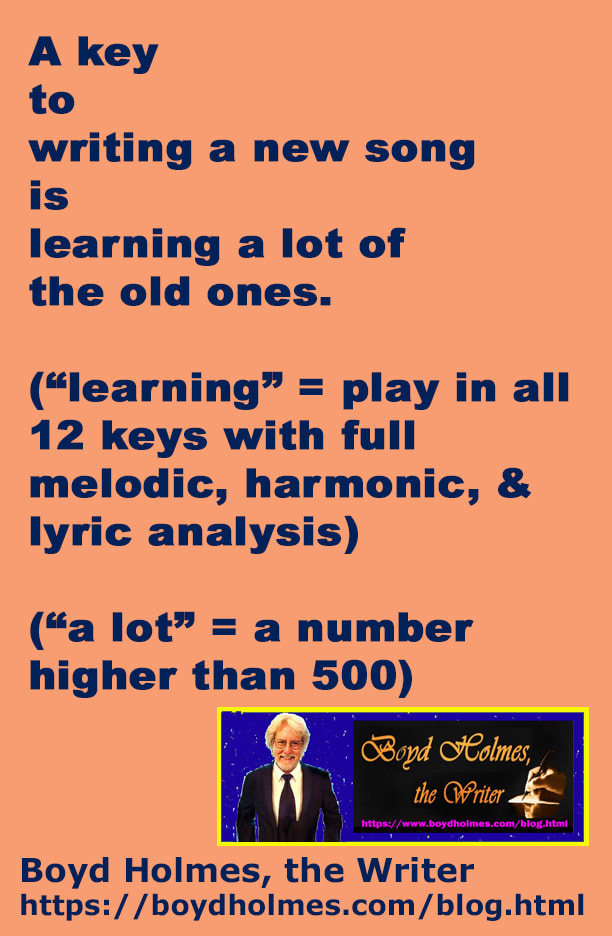
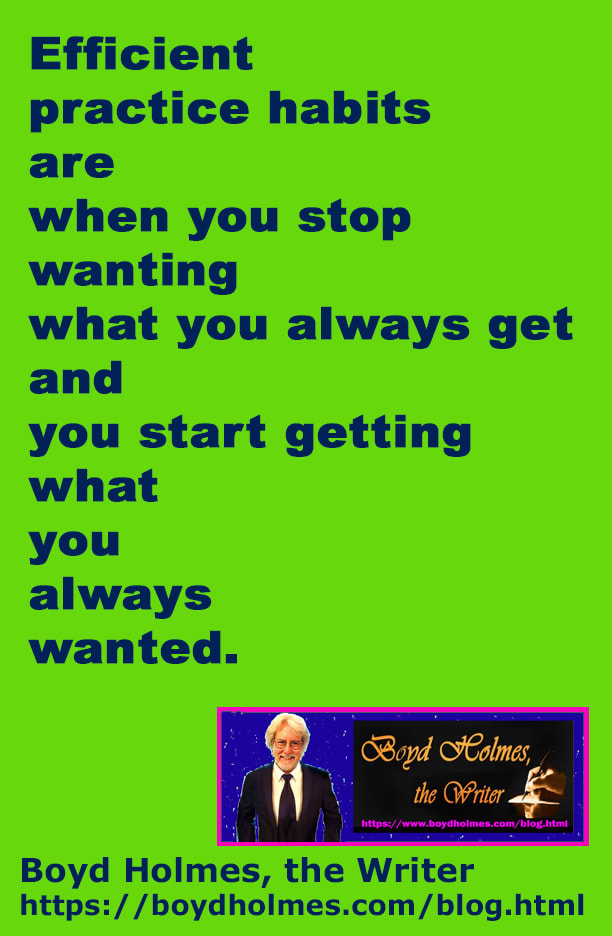
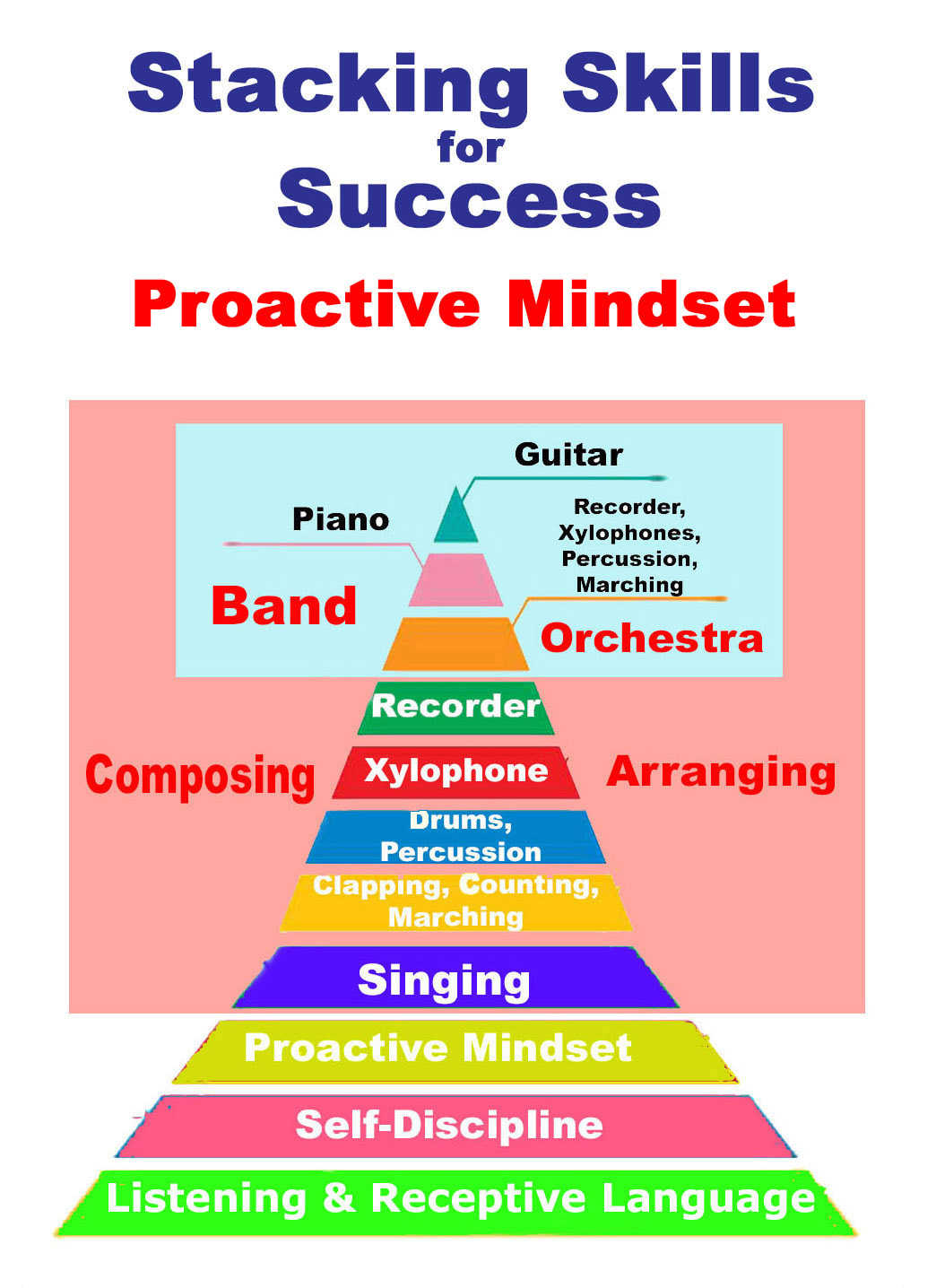
 RSS Feed
RSS Feed